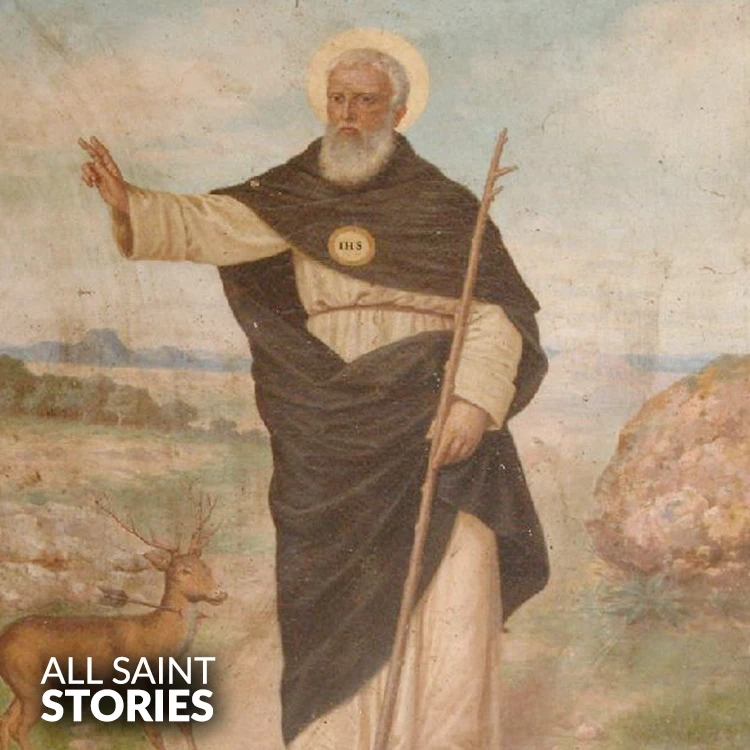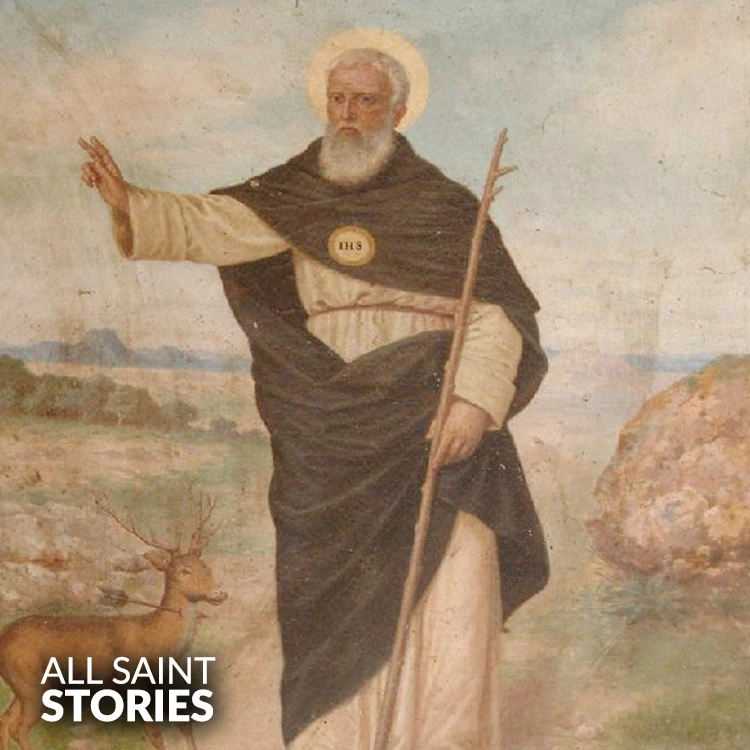"Saint Giles, protector of the humble and healer of the sick, intercede for us in our times of need. Help us to live with compassion and faith, and guide us toward God's grace. May your example of kindness and humility inspire us to serve others with love. Amen."
ST. GILES
ST. GILES

St. Giles was a 7th-century Christian hermit and monk who became known for his deep devotion to God and his service to the poor and sick. He founded a monastery in southern France, which later became a place of pilgrimage. St. Giles is considered the patron saint of beggars, the disabled, and protection from evil.
St. Giles is believed to have been born around the year 640 AD, though much of his early life remains a mystery. According to legend, he was born in Athens, Greece, to noble parents but chose a life of poverty and solitude in order to follow Christ more closely. He eventually became a hermit in the wilderness of southern France, near the town of Nîmes.
St. Giles is best known for founding a monastery near the Rhone River, which later became a prominent pilgrimage site, especially for those seeking healing. His great compassion and care for the poor, disabled, and sick were at the heart of his mission, and he was revered for his miracles of healing. He was also known for his humility and deep devotion to God, living a simple life of prayer and penance.
He passed away on September 1, 710 AD, and his feast day is celebrated on that date. The town of Saint-Gilles in France, named in his honor, became an important center of pilgrimage during the Middle Ages, especially for those traveling to Santiago de Compostela.
St. Giles is considered the patron saint of beggars, the disabled, and protection from evil. He is often depicted in art with a bow and arrow, symbolizing the legend that he was wounded by an arrow while protecting a deer, which later became associated with him.
Video Not Found
The information on this website is compiled from various trusted sources. While we aim for accuracy, some details may be incomplete or contain discrepancies.
If you notice any errors or have additional information about this saint, please use the form on the left to share your suggestions. Your input helps us improve and maintain reliable content for everyone.
All submissions are reviewed carefully, and your personal details will remain confidential. Thank you for contributing to the accuracy and value of this resource.
Credits & Acknowledgments
- Anudina Visudhar (Malayalam) – Life of Saints for Everyday
by Msgr. Thomas Moothedan, M.A., D.D. - Saint Companions for Each Day
by A. J. M. Mausolfe & J. K. Mausolfe - US Catholic (Faith in Real Life) – Informational articles
- Wikipedia – General reference content and images
- Anastpaul.com – Saint images and reflections
- Pravachaka Sabdam (Malayalam) – Saint-related content and insights
We sincerely thank these authors and platforms for their valuable contributions. If we have unintentionally missed any attribution, please notify us, and we will make the correction promptly.
If you have any suggestion about ST. GILES
Your suggestion will help improve the information about this saint. Your details will not be disclosed anywhere.
© 2026 Copyright @ www.allsaintstories.com





 English
English
 Italian
Italian
 French
French
 Spanish
Spanish
 Malayalam
Malayalam
 Russian
Russian
 Korean
Korean
 Sinhala
Sinhala
 Japanese
Japanese
 Arabic
Arabic
 Portuguese
Portuguese
 Bantu
Bantu
 Greek
Greek
 German
German
 Dutch
Dutch
 Filipino
Filipino